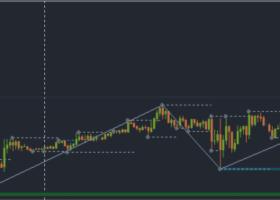
(05 February 2020)DAILY MARKET BRIEF 2:WTI struggles near $50/barrel. PMI services in focus.
WTI crude is sputtering near the $50 a barrel. What keeps the price from tumbling further is certainly the expectation that the OPEC+ could
lower its production by a million barrels per day to readjust its offer to the sharp decline in oil demand caused by the coronavirus. Given the
mounting downside pressure on oil and gas prices, anything less than that would send the price of a barrel below the $50 handle.
On the
data front, the Caixin China services PMI fell to 51.8 in January versus 52.0 expected by analysts and 52.5 printed a month earlier. Provided
that more than 50 million people were quarantined last month, rail and road travels on major axed halted, most businesses closed their doors
and haven’t opened just yet, a minor fall in expansion is rather encouraging. Or the number doesn’t tell the truth.
In the FX markets,
the USDJPY surged above 109.50 as safe haven capital quit the yen. Gold shortly traded below $1550 per oz then rebounded. The euro and the
pound remained ranged. The EURUSD steadied near its 200-hoy moving average (1.1035) before the final January services PMI figures, as
Cable traded a touch above the 1.30 handle.
Yesterday, the UK construction PMI bettered the already solid expectations in January. Today, the
services PMI should confirm a rebound in activity posterior to the December snap election as well. So far, we know that the business surveys
reacted well to fading political stress and waning no-deal Brexit expectations. How much of this optimism would translate into the
headline data such as growth and inflation is what will really matter to the pound. In this respect, the next couple of data points may see
limited market reaction if they refer to the pre-election period. Among those, the fourth quarter growth and December production data due
next Tuesday. Only the following week, the January inflation data (due February 19) should have the means to move the pound in a meaningful
manner. Until then, the speculation that things are improving should put a floor under the pound, weakened by worries that bilateral Brexit
negotiations won’t be a piece of cake.
By Ipek Ozkardeskaya


